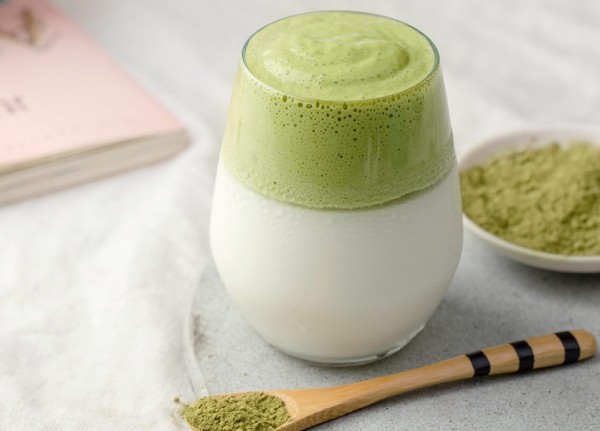LIFESTYLE
Is it Good to Add Milk to your Coffee?
Tiphaine Honnet - Madame Figaro
20-June-2023

Aberration for some, morning sweetness for others, the addition of milk in coffee divides taste buds during breakfast. However, is it a healthy habit for the body? Let's take a closer look.
While many claim they cannot do without their morning coffee, others prefer to accompany the black and bitter liquid with a hint of warm milk, or even drown it in a milky ocean. However indulgent it may be for these enthusiasts, is the beverage beneficial for the body? From a touch of cloudiness to a "hazelnut" flavor, or the substantial latte, do we risk diluting the drink too much and diminishing the caffeine's energizing effect? Is it reasonable from a digestive standpoint? Here are some points to consider.
No known effects on caffeine
Consumed alone, a black coffee is known for its documented benefits. As reported by Astrid Nehlig, Emeritus Research Director at the French National Institute of Health and Medical Research (Inserm) and specialist in the effects of coffee on health, the beverage contains the famous caffeine molecule, which has stimulating properties and is protective against cognitive decline. It also contains valuable antioxidants called polyphenols. "These have a hypotensive effect on the heart, protect cells from aging, limit DNA breakage, and reduce tissue inflammation," explains Astrid Nehlig.
So, what happens when you add milk to it? No study to date indicates potential harmful effects on caffeine, confirms the specialist. According to her, it is the initial dosage of coffee that will affect the stimulating effect of caffeine, not the milk. Regardless of whether it's with or without milk, it is important to respect the recommended doses. Excessive caffeine intake can lead to nervousness, sleep disturbances, and cardiovascular problems. According to the European Food Safety Authority (EFSA), a healthy adult should not exceed a threshold of 400 mg of caffeine throughout the day (200 mg for pregnant women), which is equivalent to four to five cups of filtered coffee throughout the day.
A better anti-inflammatory effect?
The interaction of milk with the antioxidant properties of coffee is still the subject of scientific debate. Recently, research from the University of Copenhagen, published on January 30, 2023, in the scientific journal Journal of Agricultural and Food Chemistry, suggests that coffee with milk may have better anti-inflammatory effects than a simple black coffee. After conducting an in vitro study, the researchers found that the antioxidant power of coffee's polyphenols was twice as effective when combined with the amino acids found in milk.
According to Astrid Nehlig, who has been able to review the study, this hypothesis remains to be confirmed as it has not been studied either in animals or in humans. However, the specialist sees a connection with previous promising research. This includes the work of the Swiss Nestlé Research Center, published in February 2010. "The researchers looked at the composition of blood plasma after ingestion of different coffee recipes and found that the addition of whole milk did not affect the bioavailability of coffee polyphenols," she reports.
Satiating, but not always easy to digest
After consuming a café au lait or a latte, one may feel a sense of satiety. This is perfectly normal as milk contains proteins that have a satiating effect, points out Catherine Lacrosnière, a nutritionist and author of "L'Alimentation anti-inflammatoire - Naturellement healthy."
However, for other individuals, this feeling of satiety may be accompanied by digestive discomfort, bloating, nausea, or even accelerated bowel movements. According to the nutritionist, these unpleasant symptoms may indicate lactose intolerance. "Lactose, which is a sugar found in milk, is normally absorbed in the small intestine by an enzyme called lactase. However, the production of this enzyme gradually decreases with age, and if one stops consuming milk, the enzyme may disappear. As a result, lactose is not digested as easily," explains Dr. Catherine Lacrosnière.
Recommended

The 25th Edition of DIAFA Honors the Biggest Names
1-December-2025

The Many Myths Around Smoke-Free Alternatives
12-November-2025

The Difference Between Smoke and Aerosol
3-November-2025
Most read
-
1
Nour Arida’s Sorbé Hair Clip Sparks Controversy
-
2
Bal des Débutantes 2025: an Enchanting Evening in Paris
-
3
Rouba Kreidy, Founder & CEO of Create Agency: Redefining Resilience and Creativity in Times of Crisis
-
4
Best Dressed Celebrities at the Gotham Awards
-
5
Vin Diesel Wheels Michael Caine onto Red Carpet at Red Sea Film Festival





